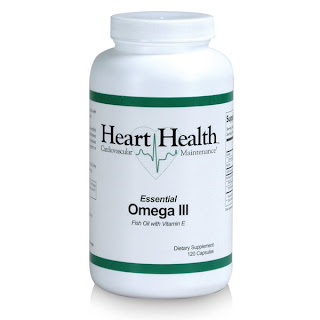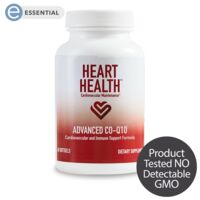People have been conditioned to reach for a drug to solve any and every problem. This leads to an avalanche of health issues. The United States of America has the best "acute care" in the world. If you suffer a heart attack or are injured in a car accident, there is no better care in the world. But, when it comes to chronic care, western medicine is all about treatment via pharmaceuticals. This should not come as a surprise when you learn that pharmaceutical companies subsidize American medical schools. So many people fall into the pharmaceutical cycle and don't even know they're being used for profit. If you have a primary care physician who practices prevention and wellness- keep him/her!!! Remember the old saying, "An ounce of prevention is worth a pound of cure?" Well, today's medicine isn't even about the cure, it's about the maintenance drugs. Therefore, an ounce of prevention is worth a TON of cure...so...in my opinion, your focus should be on prevention and wellness. This is why the blog is named "Lose Sickness and Find Wellness." Our mantra is "Eat Well, Exercise, and Supplement Intelligently" because those are the three pillars of health in our opinion. \
It all starts with healthy eating. We eat as many organic fruits and vegetables as possible. Yes, they cost more. However, we made the decision to lose sickness so that is one of the costs. We also garden so that we can grow our own food. This helps with the overall cost and provides us with a great outlet to relieve stress! We stopped eating red meat 20 years ago. We no longer consume mammals. There are a number of health and environmental reasons for this but for us, it was the right thing to do. We eat chicken, turkey, and wild caught fish (never farm raised). We try to eat organic or free range fowl if possible. We also try to eat free range eggs. We plan to raise our own chickens within the next 12 months. We eliminated wheat and sugar from our diets. We do not consume ANY artificial sweeteners at all. We use a minimal amount of stevia in recipes. We juice almost every day with collard greens, kale, carrots, celery, cucumbers, red beets, and ginger. Our goal is to make better choices today than we made yesterday!
Every day, you have a choice...you can fall into the profit trap of the big pharmaceutical companies and follow the path of sickness or you can make a decision to lose sickness and find a wellness path. There is a lot of good information available if you look. It takes a little more time and some people may tease you for being different (this is the root of all bullying) but it's worth it. We raised our children naturally and yes, they were a bit different. At 20 and 18, they are now extremely healthy young adults. They are both at college and in their own ways, they are helping their friends and fraternity brothers to lose sickness and find wellness.
Phillip A. Black
Orlampa Enterprises, Inc.
Orlampa Enterprises, Inc.
specializes in helping individuals lose sickness and find wellness.
Orlampa Enterprises also
helps health care professionals implement holistic wellness programs into their
existing practice with the goal to educate both the health care provider and
the patient. The programs, which provide the health care professional with a
substantial additional income stream in this ever changing medical marketplace,
allow the patient to achieve true wellness instead of receiving a traditional
treatment for symptoms.
Orlampa Enterprises is an internet based product broker specializing in personalized health and wellness related services. Orlampa Enterprises is primed to continue its growth by duplicating its successful business model of educating, training, and developing entrepreneurial leaders as business partners. As an Unfranchise™ business owner, Orlampa Enterprises, proudly utilizes highly researched products including nutraMetrix® nutritional supplements.
Orlampa Enterprises is an internet based product broker specializing in personalized health and wellness related services. Orlampa Enterprises is primed to continue its growth by duplicating its successful business model of educating, training, and developing entrepreneurial leaders as business partners. As an Unfranchise™ business owner, Orlampa Enterprises, proudly utilizes highly researched products including nutraMetrix® nutritional supplements.
Orlampa
Enterprises' motto is "Eat well, exercise, and supplement
intelligently."
Contact Beth at bb@orlampa.com or 727.492.8212 for more information about nutraMetrix® partnership opportunities available.
Contact Beth at bb@orlampa.com or 727.492.8212 for more information about nutraMetrix® partnership opportunities available.





